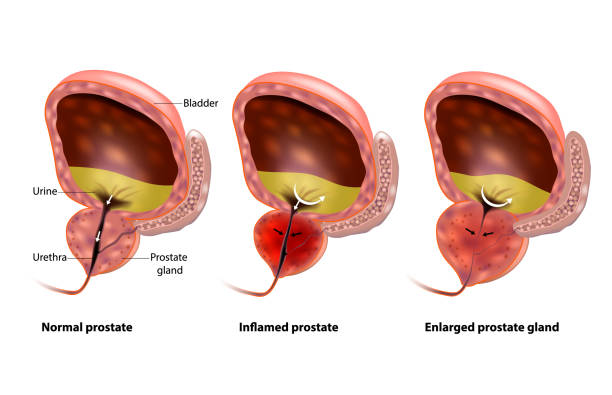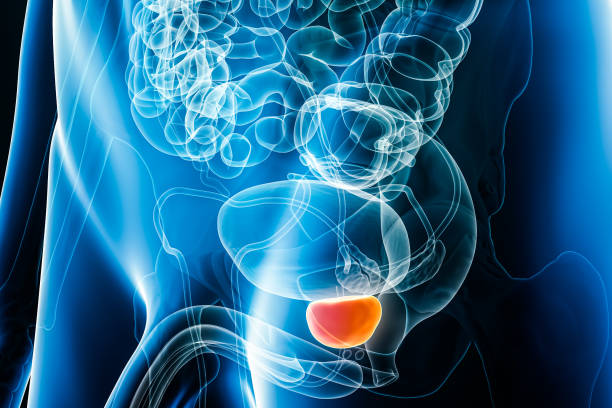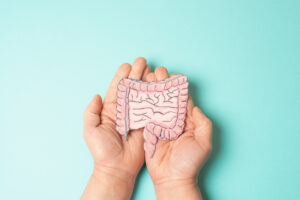When it comes to men’s health, the prostate often goes undiscussed—until something goes wrong. Yet understanding what the prostate is, what it does, and how it affects other aspects of health is essential for early detection of conditions such as prostate enlargement, prostatitis, and prostate cancer. Despite its small size, the prostate plays a major role in male reproductive and urinary health, particularly as men get older.
This article offers a clear, medically grounded explanation of the prostate gland’s function, its location, and its impact on overall health, along with important information on when to speak to a healthcare provider. Whether you’re 30 or 70, understanding your prostate is an important step in taking care of your long-term well-being.
What Is the Prostate?
The prostate is a small, walnut-sized gland found only in men. It is located just below the bladder and surrounds the urethra—the tube that carries urine from the bladder out of the body. The prostate sits in front of the rectum, which is why a doctor can feel it during a digital rectal examination (DRE).
Its main function is linked to reproduction, but due to its position in the body, it also plays a part in urinary control. The prostate changes naturally with age, which is why so many men develop prostate-related symptoms later in life.

The Prostates Role in Reproductive Health
The prostate’s most important job is to produce and secrete a fluid that makes up a portion of semen. This fluid nourishes and protects sperm during ejaculation.
Here’s how it works:
- The seminal vesicles, located just behind the prostate, produce the majority of the seminal fluid.
- The prostate adds a milky white, slightly alkaline fluid that helps sperm survive in the more acidic environment of the female reproductive tract.
- This fluid is released into the urethra during ejaculation, where it mixes with sperm from the testicles and other fluids to form semen.
The enzymes, proteins, and nutrients secreted by the prostate are crucial for male fertility. One of the enzymes produced is Prostate-Specific Antigen (PSA), which helps to liquefy semen after ejaculation and is also used in prostate health screening.
The Prostate and the Urinary System
While the prostate’s primary role is reproductive, its position around the urethra means it also affects urination.
A healthy prostate does not interfere with urinary flow. However, as men age, the prostate often increases in size—a condition known as benign prostatic hyperplasia (BPH). When the gland enlarges, it can press against the urethra and partially block the flow of urine. This is why many older men experience symptoms such as:
- Difficulty starting urination
- A weak or interrupted stream
- Frequent urination, especially at night
- A feeling that the bladder is not fully emptied
These urinary symptoms are not necessarily signs of cancer but should be assessed by a healthcare provider. They can be effectively managed through medications, lifestyle changes, or, in some cases, surgery.
The Prostate Across a Man’s Life
In Your 20s and 30s
At this age, the prostate is typically healthy and functions normally. Most men will not be aware of its presence unless experiencing prostatitis—an inflammation of the prostate, which can occur due to infection or unknown causes.
In Your 40s and 50s
This is when the prostate may begin to grow, even if it does not yet cause symptoms. Men are encouraged to begin discussions with their GP about prostate health around the age of 50—or from age 45 if they have a family history or are of African or Caribbean descent, as risk is higher in these groups.
In Your 60s and Beyond
The likelihood of prostate-related issues increases with age. BPH becomes more common, and the risk of prostate cancer also rises. Regular screening and symptom awareness become increasingly important.
Common Prostate Conditions
1. Benign Prostatic Hyperplasia (BPH)
This is non-cancerous enlargement of the prostate. It’s extremely common in older men and can cause urinary symptoms due to pressure on the urethra. Treatments include medication, minimally invasive procedures, and lifestyle changes.
2. Prostatitis
An inflamed prostate, which can cause pain, fever, difficulty urinating, and discomfort in the pelvic region. It can be acute (sudden and severe) or chronic (ongoing). Treatment typically involves antibiotics and supportive care.
3. Prostate Cancer
The most serious prostate condition, this is one of the most common cancers among men in the UK. Early prostate cancer may not show symptoms, which is why proactive screening is important. When symptoms do appear, they can overlap with those of BPH or prostatitis.
How to Keep Your Prostate Healthy
While not all prostate conditions can be prevented, certain lifestyle choices are associated with better prostate health:
- Maintain a healthy weight: Obesity is linked with more aggressive forms of prostate cancer and worsened urinary symptoms.
- Exercise regularly: Physical activity supports hormone balance and urinary function.
- Eat a balanced diet: Diets rich in fruits, vegetables, and healthy fats (such as omega-3) may support prostate health.
- Limit red meat and processed foods: High consumption may be linked to increased prostate risk.
- Stay hydrated: Drinking plenty of water supports urinary tract function.
- Get regular check-ups: Particularly if you’re over 50 or have a family history of prostate cancer.
When Should You Get Your Prostate Checked?
Even if you are not experiencing symptoms, it’s worth discussing prostate health with your GP if you:
- Are over 50
- Are over 45 and have a family history of prostate cancer
- Are of African or Caribbean descent
- Have urinary symptoms or sexual health changes
Your doctor may recommend a PSA blood test, a digital rectal exam (DRE), or further imaging based on your symptoms and risk factors.
Conclusion
The prostate may be small, but its function is far from minor. From producing essential components of semen to regulating aspects of urinary health, it plays a central role in a man’s overall well-being.
Understanding what the prostate does helps demystify a topic many avoid until symptoms arise. Being informed means being prepared, and more likely to spot issues early. Regular conversations with your doctor, especially as you get older, can make a significant difference in catching problems early when they’re most treatable.
If you have any concerns about your prostate or would like to learn more about our services, contact our specialist prostate clinic today.
Early advice, simple screening tests, and expert support are just a call away.



